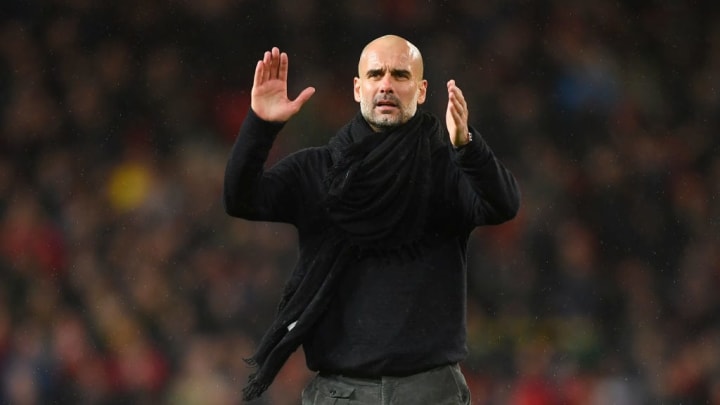
What if Sir Alex Ferguson had joined Liverpool instead of Manchester United in 1985?
As we all know, back in 1986, Sir Alex Ferguson joined Manchester United. 27 years and 13 league titles later, he retired, having turned one of the game’s biggest rivalries on its head and completely and irreversibly changed the course of English and European football. No biggy.
But what if…he hadn’t?
What if he wasn’t available to take over at Old Trafford in November 1986, because over a year earlier, United’s bitter rivals Liverpool had swept in and taken him from Aberdeen?
Sir Alex Ferguson once fined his Aberdeen players for a prank in a hotel. And the gruff Glaswegian told them about their punishment in verse! pic.twitter.com/Vz1xuXJr8C
— Neil Drysdale (@NeilDrysdale) May 6, 2018
What if the Reds, who were reported at the time to be considering Ferguson as a replacement for Joe Fagan, had taken a leap of faith, and handed the reins to Fergie rather than Kenny Dalglish?
Here’s your alternate history lesson on how things would have played out, had Liverpool decided Ferguson was their man.
32 years ago today, Alex Ferguson leaves his post as Aberdeen manager and disappears into obscurity. pic.twitter.com/afPLRcZy2j
— Here We Go! – The Aberdeen FC Podcast (@AFCHereWeGo) November 6, 2018
In this version of history, Ferguson won just eight honours as manager of Aberdeen. The cup double of 1985/86 didn’t happen, because after their Scottish Premier Division win in 1985 – to this date the last time Aberdeen won the league – the speculation that Liverpool were interested did come to fruition.
United, for now, don’t blink. Despite a disappointing finish to the league season, they’re going well under Ron Atkinson, and helped on by the goalscoring exploits of Mark Hughes, they’ve just won the FA Cup.
Liverpool, however, are armed with one of the most exciting managers ever to come out of Scotland, and their bitter rivals can’t help but feel a little envious.
Ron Atkinson: Manchester United’s most flamboyant boss https://t.co/QmQ28kMkvz pic.twitter.com/dEe6UuMoIo
— United In Focus (@UnitedInFocus) November 29, 2016
The universally-backed Ferguson inherits an impressive team. Despite Fagan’s disappointing final season, which saw them finish 13 points behind champions Everton, this was a side who had won the league in eight of the last 13 seasons, and had ambitions of immediately getting back to the top.
Ferguson, unlike Dalglish, however, is not armed with the luxury of an inside knowledge of the playing squad, and with little time to rebuild, he gets off to a slow start. They fail to win the league in the Scot’s first season, losing to Chelsea on the final day of 1985/86 to hand Everton the second of three successive top-flight titles. With the balance of power in Merseyside shifting, unrest slowly begins to build.
Over at United, meanwhile, things under Atkinson take a turn for the worst. They are left languishing in the relegation zone by November 1986, and he is shown the door.
The pool as they search for his replacement isn’t great, however. After deciding against Brian Clough on the grounds he’s a bit mental, they decide to take a punt on Norwich City’s Ken Brown, whose newly-promoted team had topped the division just a month earlier.
Brown’s arrival serves as a rude awakening for a previously languid squad, and with the help of big performances from the likes of Bryan Robson and Gordon Strachan, he does enough to earn him an extended stay in the job.
Liverpool title wins: 18
Manchester United title wins: 7
Trailblazer ?
Liverpool legend ?
England icon ???????
Rapper of the greatest verse in football music history ?Happy birthday, John Barnes ? pic.twitter.com/a7rsxMWnq5
— Goal (@goal) November 7, 2019
Everton’s growing dominance of the English game is showing no signs of letting up and by 1987 – entering his third season – Ferguson is on his last chance. As a final throw of the dice, he overhauls the squad – Steve Bruce arrives from Norwich to replace the retiring Mark Lawrenson, Brian McClair comes in to add some goals from midfield, while John Barnes is signed up as a straight replacement for Ian Rush, who left for Juventus.
It’s the first sign of a classic Fergie rebuild, and the goals of McClair and Barnes fire them to a first league title under the new regime. It’s no one-off, either: as the squad slowly evolves under Ferguson and Knox, they win another title, then another, after pipping Graham Taylor’s Aston Villa to the 1990 First Division.
United, meanwhile, are frustrated by the strides their rivals have made with such a forward-thinking appointment, and decide to change track. Citing a lack of progress shown in their third straight 11th-placed finish, accompanied by an FA Cup semi-final defeat to Oldham, they decide against renewing Brown’s contract, and once again go on the lookout for a new man to take the reins.
Over the summer on Merseyside, though, paradise is not all it seems. Dalglish, newly appointed as Ferguson’s assistant after Knox returned to take over at Aberdeen, has his opinions about how things should be done. He steps out of line when he informs Ferguson that transfer target Mark Hughes’ Manchester United past means he would be ‘a failure before he kicks a baw’ at Anfield, and Ferguson kicks King Kenny into touch within a month of his appointment.
Liverpool Title Wins: 21
Manchester United Title Wins: 7
By the time the 1990/91 campaign is set to start, both clubs, by their own standards, are in a state of uncertainty. United’s appointment of Graham Taylor is met with a mixed reaction; he had rebuilt Villa into a team fit to challenge Liverpool, but he had never actually won a major trophy, and was rejected by England just prior to taking over.
Aston Villa will now host the Graham Taylor OBE tribute match…
Game will be on Saturday July 29, KO 3pm.
Info ? https://t.co/ULvWH8OmIH pic.twitter.com/qFehqBwFQ4
— Aston Villa (@AVFCOfficial) June 26, 2017
Any reservations about the new appointment are quickly swept aside by an exciting couple of signings which immediately follow the new manager, however: Gary Lineker makes himself a Liverpool pariah by rejecting Ferguson’s advances to sign for United, while Denis Irwin, who starred in the Oldham side that had sent them packing in the cup, also arrives at Old Trafford.
The arrivals of Taylor and Lineker in particular appear to freshen things up, while the emergence of a prodigious crop of young players – Ryan Giggs, Gary Neville, David Beckham and Paul Scholes – bring about a decade of unprecedented success. With two games to spare of the 1990/91 season, a Lineker hat-trick wins them their first title in over 20 years at Highbury.
The 90s go on to be dominated by a young, bolshy, Taylor-led United squad, while Ferguson’s Reds struggle to change with the times – though do oust their rivals for the 1994/95 title.
Liverpool Title Wins: 22
United Title Wins: 12
As the clock strikes midnight on 31 December 1999 and the world holds its breath expecting some sort of machine-led apocalypse (this really happened, kids) the Taylor-Ferguson rivalry is really beginning to hit full swing.
A Ferguson rant about marking the milestone by knocking treble-winning United ‚off their perch‘ doesn’t go down well in Lancashire, and Taylor, clearly riled by the Scot’s savvy use of the press, unconvincingly claims that United will do their talking on the pitch.
It’s unconvincing because it’s neither United nor Liverpool, but Arsenal – under the tutelage of new boss Arsene Wenger – who mark the new century with a dominant title win. The emergence of the Gunners kicks off a three-horsed race like nothing ever seen in English football, and even the ambitious Roman Abramovich-funded project at Chelsea is unable to break the stranglehold of the ‚big three‘ (he steps down in 2009 having won just one League Cup and Chelsea are later relegated).
By now, Ferguson’s Liverpool are a renewed force. They have a golden age of their own with the emergence of Jamie Carragher, Steven Gerrard and Michael Owen from the academy ranks, and the latter strikes up such a prolific partnership with Andy Cole – a 1999 signing from Newcastle – that he is persuaded to reject Real Madrid when they eventually come calling.
Between them, English football’s big three win all ten titles throughout the 2000s, but success on the European front is harder to come by – United’s defeat to AC Milan in Istanbul the only European final any English club reached in that period.
Liverpool Title Wins: 25
United Title Wins: 16

2011 sees Ferguson, by now a modern day Liverpool legend after seven league wins in his 26 years. call it a day. After conquering Pep Guardiola’s Barcelona at Wembley to win his first ever Champions League – and the first by an English club since Liverpool themselves in 1984 – he says his goodbyes to Anfield, and retires as one of the most successful coaches English football has ever seen.
Taylor has nothing but nice things to say about his old rival, but with Ferguson goes his appetite for the game. Two years later, after trophyless 2011/12 and 2012/13 seasons, he too steps down a revered figure. Guardiola – on the lookout for a new project after leaving Barca – takes the reins.
Dalglish had stepped in to replace his former manager at Anfield, but the ambition by United prompts Liverpool – equally barren of recent success – into action.
They pull out all the stops to land highly-rated Borussia Dortmund boss Jurgen Klopp, because some things are inevitable in life.
Liverpool Title Wins (as of 2013): 25
United Title Wins (as of 2013): 16